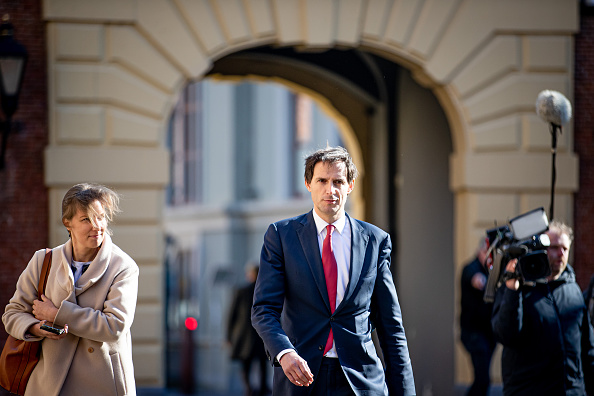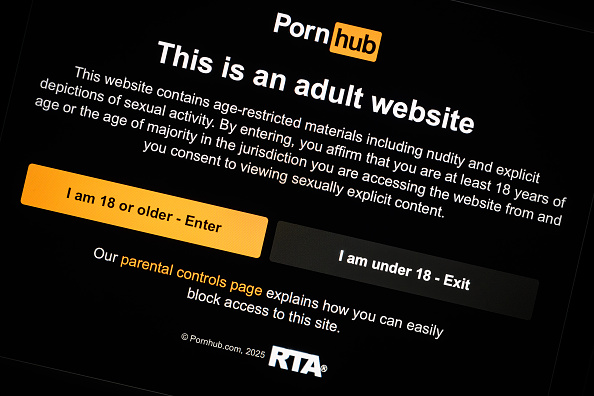China’s proposed new “mega-embassy” in central London posed “significant security concerns” to the UK’s financial services sector, a US Congressional China committee has warned.
“The Vienna Convention requires states with diplomatic relations to accommodate each other’s embassies,” Luke de Pulford, executive director of the Inter-Parliamentary Alliance on China, told Brussels Signal on February 19.
But he added: “It does not require them to permit a huge status symbol which will become a hub for transnational repression and interference, is positioned directly over critical infrastructure, and outside of which there is no space for safe protest.”
Beijing had been making plans to replace its current embassy in Marylebone with a new 5.5-acre complex near the Tower of London, which would be its largest in Europe.
The new complex would lie near the fibre-optic cables that sprawl under London’s financial district. Its location, on a busy street off Tower Bridge, would also make it more difficult for demonstrators to gather to protest actions by the Chinese Government, according to experts.
Human rights barrister Michael Polak said: “Why were the Metropolitan Police, who were originally so clear and strident in their opposition to an embassy at this site, so easily persuaded by China’s word on security and protests?”
The new embassy’s reluctant neighbours “live in an area made famous by the Battle of Cable Street, so it should not surprise you that they stand against being the forced neighbours of an overseas outpost of repression, which targets people based upon their religion, race, and belief in democracy”, Polak, who represents a local residents’ association, told Brussels Signal.
A public inquiry on China’s proposed new embassy ended on February 19, with a final decision by Angela Rayner, deputy prime minister and state secretary for housing, expected by summer.
Rayner took control of the process from the Tower Hamlets local council, which voted in 2022 and 2024 to refuse to approve the new embassy.
Foreign Secretary David Lammy and Home Secretary Yvette Cooper intervened in January to express support for its construction, following a Beijing visit by Chancellor of the Exchequer Rachel Reeves aimed at boosting economic relations.
The new diplomatic outpost would be “the largest embassy of any country, anywhere in Europe. Located within yards of the City of London boundary and near to Canary Wharf, world financial centres,” local councillor Peter Golds said on X on January 26.
It would be “20 per cent larger than the Chinese Embassy in Washington”, he added.
“We said we don’t want it, repeatedly. And suddenly the government are overruling us,” Golds told The New York Times on February 20.
China has blocked the UK from rebuilding its own embassy in Beijing, a £100 million project to replace a building dating back to 1959, until it has received permission for the embassy in London.
Meanwhile, Caoilfhionn Gallagher KC, a leading London human rights barrister representing jailed Hong Kong pro-democracy activist Jimmy Lai, said she and her colleagues had faced rape threats, hacking of their bank accounts and other intimidation from China.
“We’re not letting these threats silence us. We must stand up to bullies, not give in,” Gallagher wrote on X on February 15.
She said she had suffered hundreds of attempts to hack her bank account along with threats to rape one of her children.
At one point, an email purporting to be from Gallagher, which she did not send, went to her colleagues, saying she had decided to resign because her work on the Lai case was putting all of them in danger.
On February 10, her LinkedIn account was suspended following an unspecified complaint. It was still down on February 20.
“Remember the ultimate target of these vile tactics is one man: our client” Lai, who founded now-closed Hong Kong newspaper Apple Daily advocating freedom of speech, added Gallagher.
At one point, there were 32 simultaneous attempts to hack her email account using VPNs, making it look as if the attackers were based anywhere in the world, she told The Guardian newspaper on February 15.
Gallagher told the Parliamentary Joint Committee on Human Rights on February 5: “I do not have family in Hong Kong, so, when I am threatened and choose to speak out, I do it without having a fear of what is going to happen to my family members in Hong Kong.”
“I am acutely conscious that there are people in the room and probably watching online who do not have that experience,” she said.
“I am acutely conscious that their experience is far worse than anything I and my colleagues experience.”





